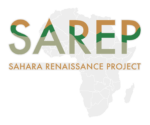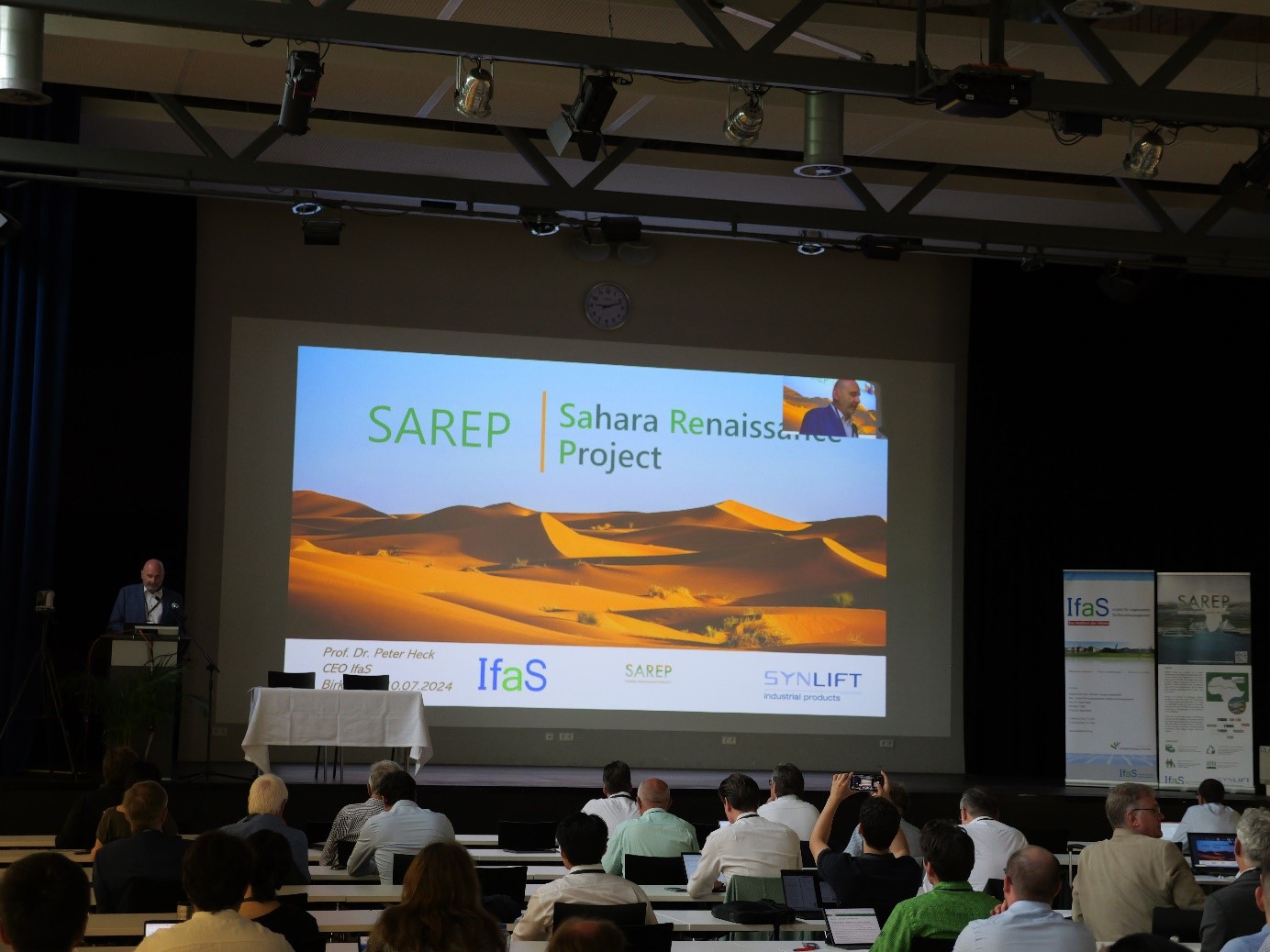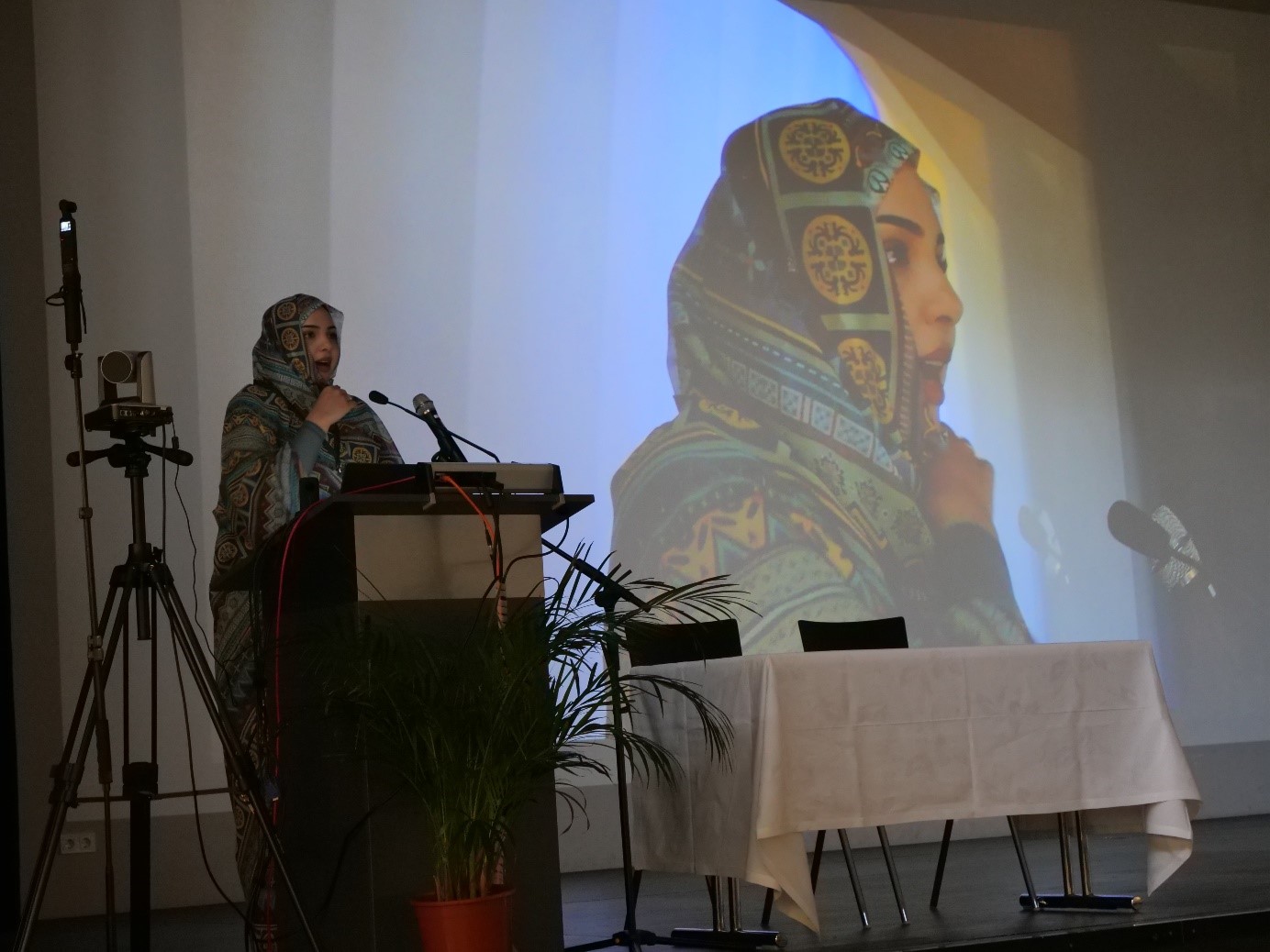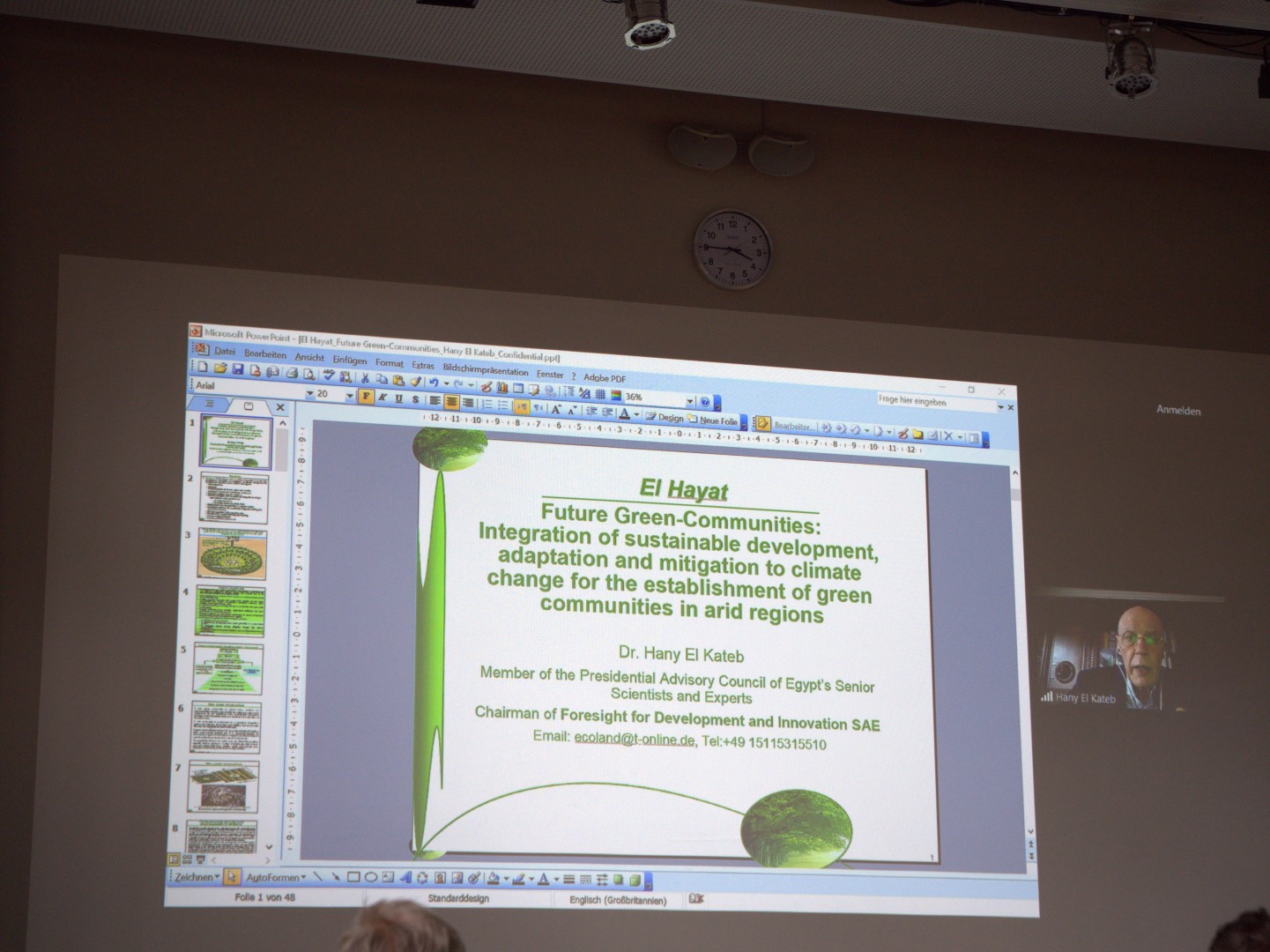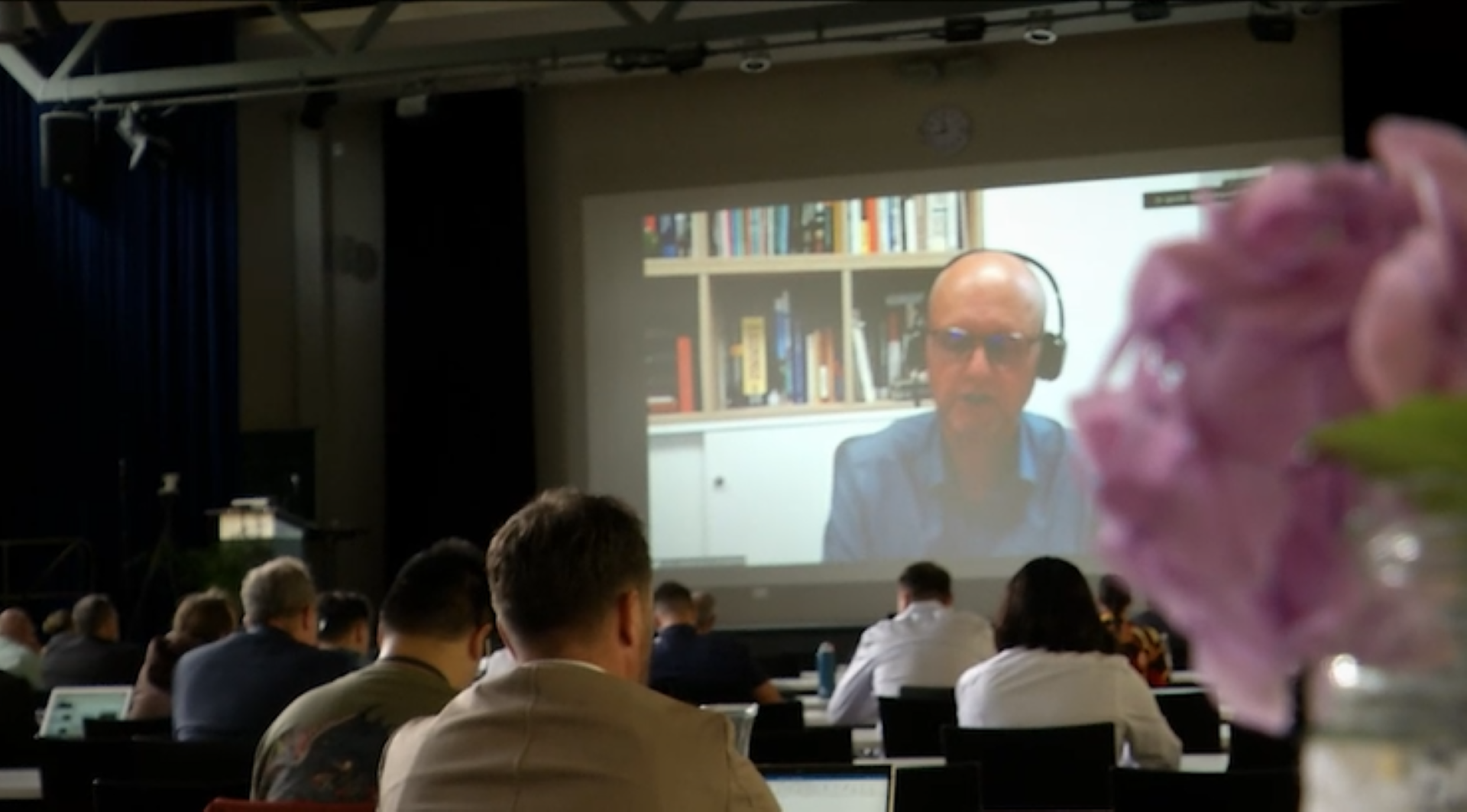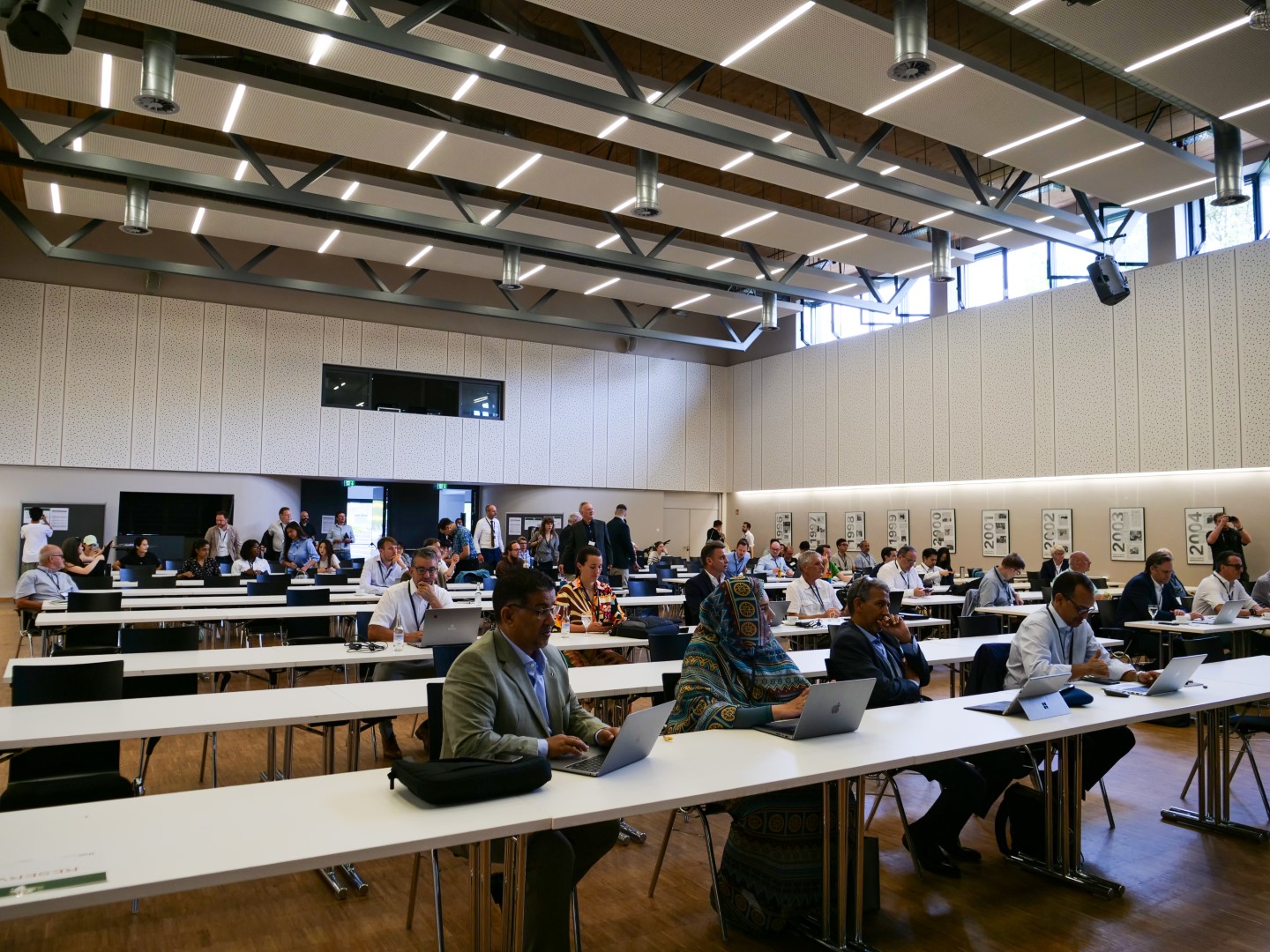SAREP Conference Program 2025
Date: 14.05.2025
Time: 9:00 – 18:00
Location: Communication Building (KG), Hochschule Trier, Umwelt-Campus Birkenfeld
The conference agenda is currently being finalized and will be updated regularly. We kindly invite you to check this page periodically for the most up-to-date information.
If you are interested in a presentation, you can request it by e-mail to info@sarep.de for your personal use.
2024 SAREP Conference
After the successful conference held in 2023 many new interesting contacts could be established and some significant progress in the project development was made. To share these new insights and to form deeper alliances, the 2nd SAREP Conference took place on 10th of July 2024 at the Environmental Campus Birkenfeld.
Political leaders, decision makers, a wide range of experts from academia as well as experienced professionals shared their insights on the project´s economic feasibility, technical aspects of implementation as well as political cooperation. The event served as a platform for connecting with key technology partners, potential investors and other interested parties in order to identify potential modes of cooperation and to strengthen existing alliances.
The conference agenda will be available down below.
After a short welcome address of Prof. Dr. Klaus Helling, Prof. Dr. Peter Heck gave a detailed introduction into the project vision, explaining the project rationale and the synergies between the different project elements, which make it a business case for circular economy. Furthermore, a status update was provided about the negotiations with the Mauritanian government as well as the signing of a Memorandum of Understanding with them in January.
Two members of the Mauritanian steering committee on SAREP were present at the SAREP conference, Ms. Taghiya Abeiderahmane from the Ministry for Energy, Petroleum and Mines as well as Mr. Mohamed Elmoustapha Bouzouma, from the Mauritanian Office of Oceanographic Research and Fishing. Ms. Abeiderahmane highlighted in her speech the positive reception of the Mauritanian government towards the project.
Dr. Mohamed Die, the founder Agency for the Promotion of Universal Access to Basic Service in Mauritania emphasized the chances of economic development for Mauritania deriving from the project. This was followed by a speech of Mr. Abdel Aziz Dahi, a former minister and former director of the central bank of Mauritania, who highlighted the political importance of SAREP for Mauritania for international cooperation. Subsequently, Mr. Mohamed Abdoullah Ebnou described the conditions for the on-site project implementation.
Afterwards, Dr. Harald von Canstein shared his perspective that a net-zero transformation of industries worldwide is possible, but only under the utilization of the potentials of turning desert areas into productive land. Complementary to this, Prof. Dr. Hermann Lotze-Campen underlined the importance of SAREP for the global climate change mitigation efforts, as land-based carbon removal projects need to ramp up drastically in order to be able to achieve the goal of limiting global warming.
Philipp Wagner gave a concise overview of the reality of planning and implementing renewable energy projects in Mauritania. and Joachim Käufler shared details about the use of reverse osmosis seawater desalination and long distance piping in the SAREP context. This was complemented by the following speech of José Gomes, who talked about the technical feasibility and economic potentials of recovering materials and minerals from the desalination brine.
Johan Tijms and Altinus Klaassen presented a first layout of the plant irrigation system for the first reference phase of SAREP based on their experiences in various African countries. This was followed by a speech of Sebastian Ebers who elaborated on the use of irrigation tubes made by recycled car tires. Then, the water storage and soil improvement potentials of using sustainably produced soil conditioners in hyper arid areas and poor soils were highlighted by Ann-Sophie Münch.
This was followed by the presentation of Dr. Hany El Kateb, who already conducted afforestation measures under similar conditions in the Egyptian desert.
The scientific methodologies on how to properly monitor tree growth and carbon sequestration for the creation of a solid baseline for Carbon Certificates were covered in the speech of Dr. Thomas Oberthür.
Rainer Kornhaas elaborated on the potentials of growing onions as a food crop in the SAREP context based on his practical experiences in Northern Ghana. Onions seem to be a profitable commodity in this project having a positive impact on regional food security.
After that, Erik Kaiser presented a software solution that could facilitate the monitoring of carbon sequestration in SAREP significantly. Under the utilization of cutting-edge technology, a satellite-based surveillance of tree growth is possible.
Dr. George Francis showed the potentials of Jatropha and Moringa oil production in the SAREP context. Boyan Angelov presented about his experiences in growing Paulownia trees in arid regions for wood production. Afterwards, the setup of a tree shelterbelt and the selection process for tree species used in SAREP were presented by Dr. Gerhard Ohlde. Daniel Pfeifer provided valuable insights about the certification process for projects focusing on nature-based carbon removal approaches.
Dr. Felix Flesch presented about the economic feasibility of the project and provided information about the modelling assumptions as well as a sensitivity analysis.
Dr. Patrick Dorvil emphasized the eligibility of SAREP for the European Investment Bank and other Development Finance Institutions. Then, Olaf-Gerd Gemein gave an overview of other project financing instruments.
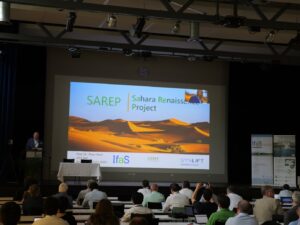
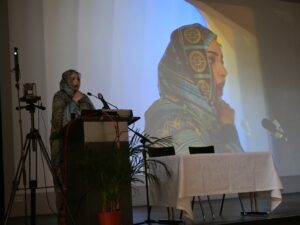
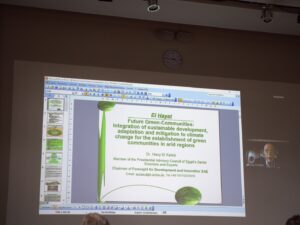
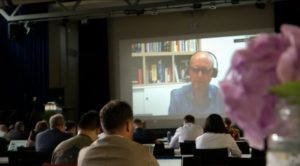
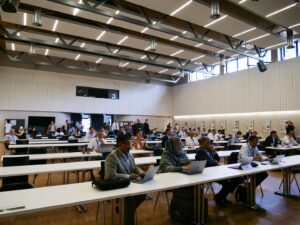
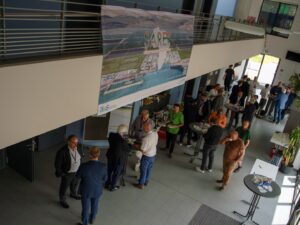
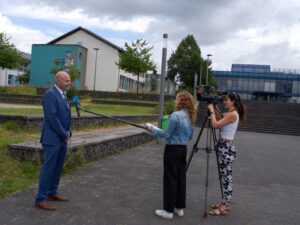
| Topic | Speaker | Organization | |
| SAREP Project Introduction and Status Update | Prof. Dr. Peter Heck | Managing Director, Institute for Applied Material Flow Management (IfaS) | |
| Partnership with Mauritania | |||
| Scope and Functioning of the Interministerial Committee on SAREP | Taghiya Abeiderahmane | Representative of the Interministerial Steering Committee on SAREP | |
| Harmonious development of green, bankable and sustainable local business content | Dr. Mohamed Die | Agency for the Promotion of Universal Access to Basic Services | |
| Project Perception of Public and Private Sectors | Abdel Aziz Dahi | Managing Partner, Richat Partners | |
| Project Management and Technical Project Implementation in Mauritania | Mohamed Abdoullah Ebnou | Engineering and Global Consulting, Mauritania | |
| Technical Project Aspects | |||
| The World‘s Climate Changes A Biologist‘s View | Dr. Harald von Canstein | Head of Biotechnology, Head of Project Development | |
| Role of Land-Based GHG Mitigation Options from the Perspective of Model Scenarios | Prof. Dr. Hermann Lotze-Campen | Head of Research Department “Climate Resilience”, Potsdam Institute for Climate Impact Research | |
| Development of Renewable Energy Projects in Mauritania | Philipp Wagner | Founder, CEO, weelectrify Africa UG | |
| Technical and Economic Dimensions of Seawater Desalination and Long Distance Piping in Mauritania | Dipl.-Ing. Joachim Käufler | SYNLIFT Industrial Products GmbH &Co. KG | |
| Sustainable Concepts for Material Recovery from Desalination Brine | José Gomes | Head of Corporate Development, Dornier Group GmbH | |
| Agriculture and Forestry in Hyper Arid Regions | |||
| Project Development of Drip Irrigation and Fertigation Systems in Hyperarid Regions | Johan Tijms Altinus Klaassen | Tijms Trading International BV | |
| Sustainability Aspects of Microporous Subsurface Irrigation in Desert Climates | Sebastian Ebers | Director Business Development, ecotube Germany GmbH | |
| Water Storage and Soil Improvement Potential of Sustainably Produced Soil Conditioners | Ann-Sophie Münch | Co-Founder, Deutsche Bodenhilfsstoff-Gesellschaft mbH | |
| Future Green Communities in Arid Regions | Dr. Hany El Kateb | Scientific Advisor of the President of Egypt in Agriculture | |
| Scientific Monitoring of Biomass Growth and Carbon Sequestration | Dr. Thomas Oberthür | Director, African Plant Nutrition Institute | |
| A Practitioners Perspective on the Cultivation of Special Vegetables in Arid Regions: Onions | Rainer Kornhaas | Vegetable Cultivation Specialist | |
| Technology-based Tree Growth Monitoring | Erik Kaiser | CEO, Karuna Technology | |
| Bio-Oil Production and Carbon Sequestration and Storage with Jatropha Curcas Plus | Dr. George Francis | CEO, Jatropower AG | |
| Cultivation of Paulownia in Dubai | Boyan Angelov | CEO, Velboy Ltd. | |
| Conceptual Blueprint for SAREP´s Agroforestry System | Dr. Gerhard Ohlde | Project Manager, IfaS | |
| Financial Project Aspects | |||
| Certification of Nature-based Carbon Removal Projects | Daniel Pfeifer | Founder, CEO Nature-Re | |
| SAREP Profitability Assessment | Dr. Felix Flesch | Co-Head International Department, IfaS | |
| Funding Eligibility of SAREP for Development Finance Institutions | Dr. Patrick Dorvil | Senior Sector Economist, European Investment Bank | |
| Overview of Project Financing Options | Olaf-Gerd Gemein | Founder, Impact Funding Europe | |
2023 SAREP Conference
The birth of the SAREP Development Initiative
This event marked an important step on the way of making the SAREP vision reality. It was the first time to share the vision of the Sahara Renaissance Project with a broader audience.
Political leaders, decision makers, a wide range of experts from academia as well as experienced professionals shared their insights on the project´s economic feasibility, technical aspects of implementation as well as political cooperation. The event served as a platform for connecting with key technology partners, potential investors and other interested parties in order to identify potential modes of cooperation and to jointly form a SAREP project development initiative.
The conference agenda with the respective presentation slides will be available down below.
After a short welcome address of Prof. Dr. Klaus Helling, Prof. Dr. Peter Heck gave a detailed introduction into the project vision, explaining the project rationale and the synergies between the different project elements, which make it a business case for circular economy.
This was followed by a speech of Mr. Abdel Aziz Dahi, a former minister and former director of the central bank of Mauritania, who highlighted the importance of SAREP for Mauritania and the region. Subsequently, Mr. Mohamed Abdoullah Ebnou described the conditions for the on-site project implementation. Then, Dr. Ahmed Shazly, a representative of SEKEM, gave a short introduction in desert agriculture and the related carbon storage potential.
The highlights of the conference were the contributions of Nany Chrougha, the Mauritanian Minister of Petroleum, Energy and Mines and Fatimetou Abdel Malick, the President of the city of Nouakchott, who both expressed their appreciation of the project and their willingness to support it from the Mauritanian side.
Dr. Bettina Hübschen, from the Hydrogen Association of Saarland, gave an insight into the decarbonization needs of the German steel industry to which the industrial complex of the project could contribute. She described the project as ambitious, but definitely feasible. Dipl.-Ing. Joachim Käufler presented about the excellent technical potentials in Mauritania for seawater desalination powered by renewable energies and the intended off-grid approach. Afterwards, Bhushan Chaudhary gave an overview of Hydrogen production potentials and possible transport and production technologies.
Then, Dr. Gerhard Ohlde listed the plant species used for the projects tree shelterbelt and described the most important cultivation aspects. This was followed by a speech of Michiel Hillen, a representative of of Tijms Trading International B.V., who elaborated on agricultural machinery and drip irrigation systems. Afterwards, Rainer Kornhaas described the technical and economic aspects of onion production in the SAREP context and Dr. George Francis gave an insightful presentation about the cultivation and utilization of Jatropha curcas. Eventually, Niklas Mitterle gave an overview of the economic aspects of the agroforestry system as a whole.
Constantin Ekiermann explained the requirements for and the demand at the international carbon markets. Complementarily, Morimi Tokuyama described current policy trends on carbon trading and different certification schemes. Katharina Schlegel further defined quality criteria that are required for creating high-quality carbon removal certificates. After that, Henning Haskamp presented about the decarbonization needs of the global shipping sector, that mainly focuses on alternative biofuels. Lastly, Mathias Brandt closed the conference with a short introduction of the carbon alliance of Rhineland Palatinate.
After the conference, new offices for SAREP were inaugurated together with the Mauritanian partners and guests and it was agreed upon the further steps that are necessary for the project implementation.
Pictures & Description
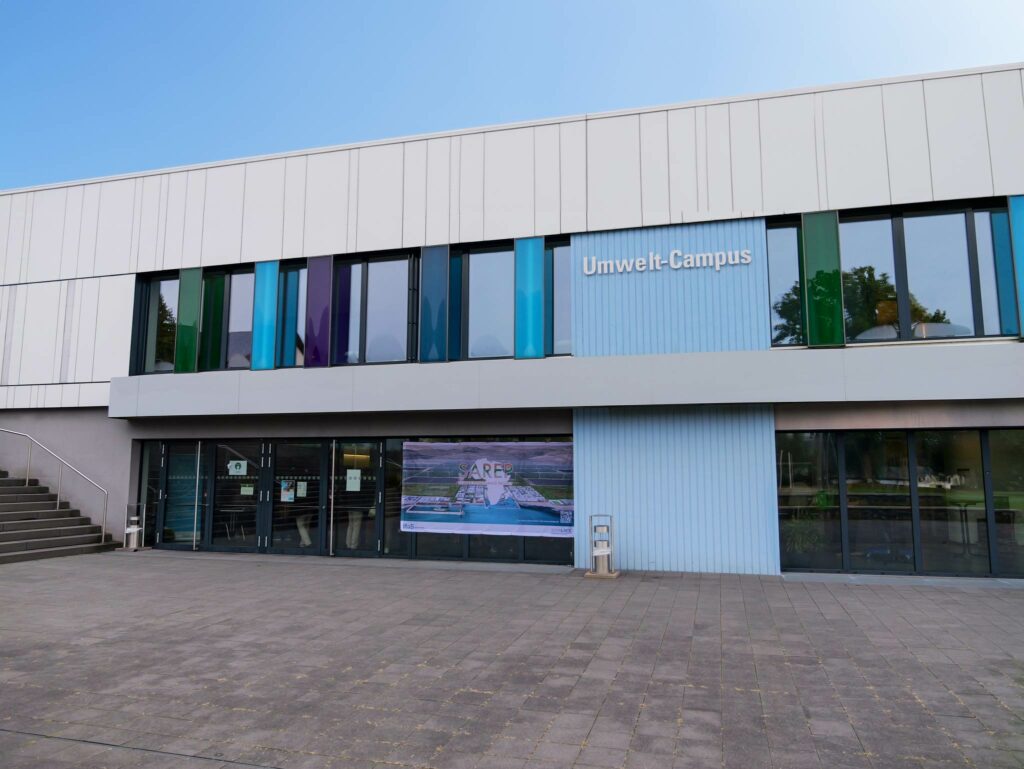
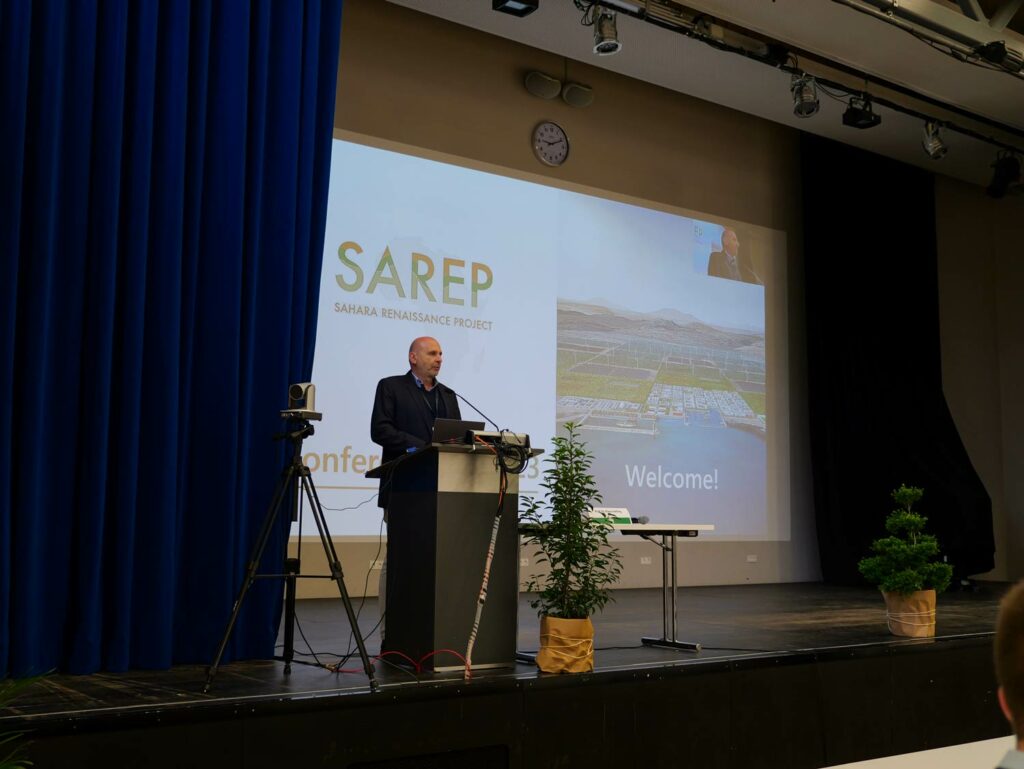
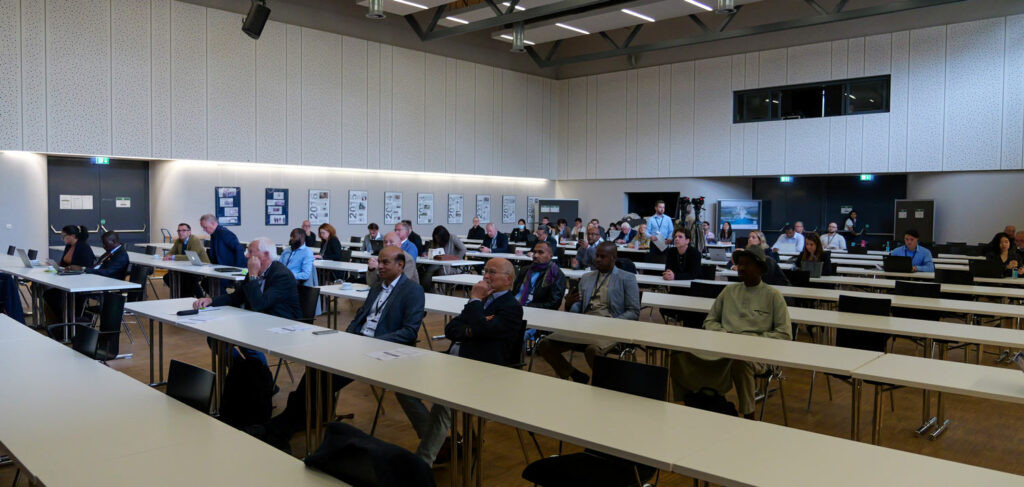
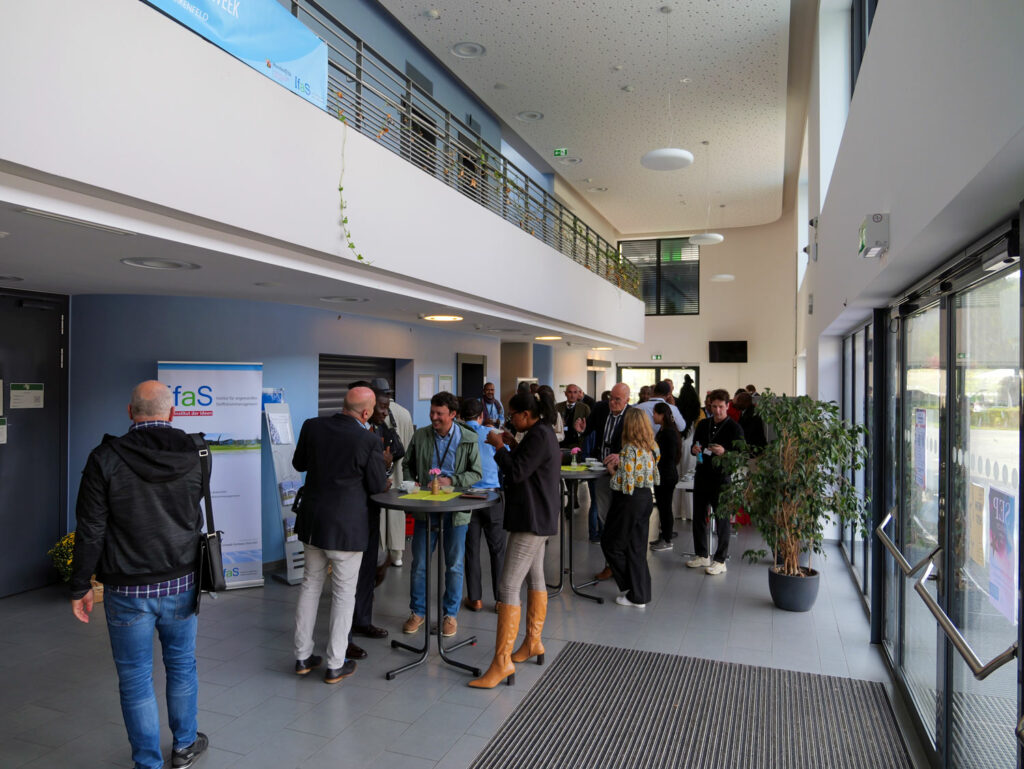
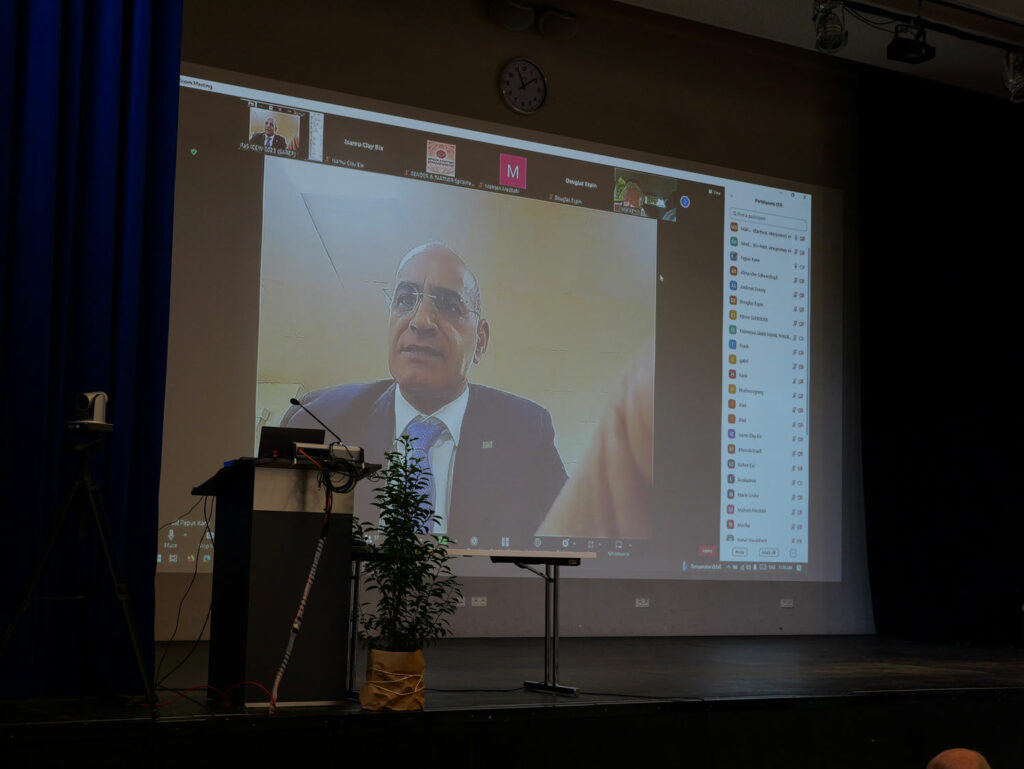
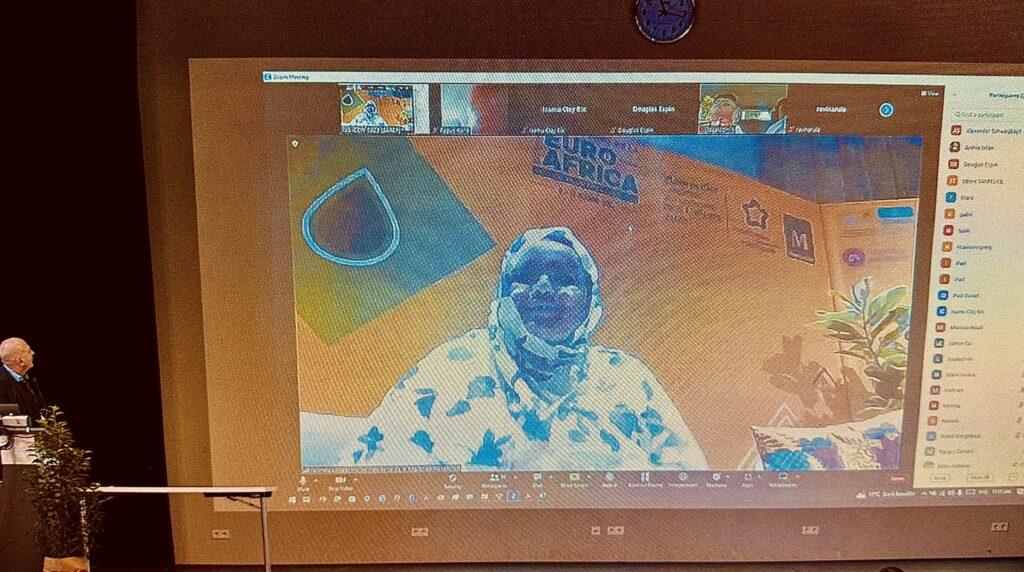
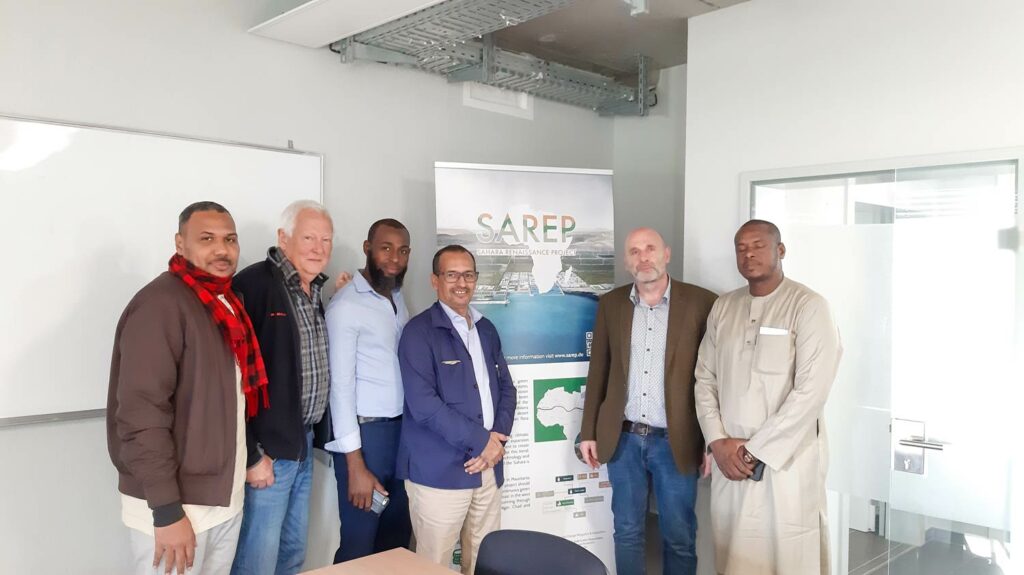
(from left to right) Mohamedou Haidara, Dr. Gerhard Ohlde, Ebaye Dah Emine, Mohamed Abdoullah Ebnou, Prof. Dr. Peter Heck, Mahamadou Barry
| Topic | Speaker | Organization | |
| SAREP Introduction and aspects of climate mitigation, adaptation and carbon storage | Prof. Dr. Peter Heck | Managing Director, Institute for Applied Material Flow Management (IfaS) | |
| Partnership with Mauritania (Moderator: Prof. Dr. Peter Heck) | |||
| SAREP Benefits for Mauretania. A Holistic Observation | Abdel Aziz Dahi | Managing Partner, Richat Partners | |
| Project Management and Technical Project Implementation in Mauritania | Mohamed Abdoullah Ebnou | Engineering and Global Consulting, Mauritania | |
| Producing Biomass and Storing Carbon in the Desert: The SEKEM Experience | Dr. Ahmed El Shazly | SEKEM | |
| Energy Security in Mauritania | Nany Chrougha, Ministre de Pétrole, des Mines et de l’Energie | Ministry of Petroleum, Energy and Mines | |
| Relevance of SAREP for City Development in Mauritania | Président Fatimetou Abdel Malick | Mayor of the City of Nouakchott | |
| Technical & Economic Project Aspects (Dr. Gerhard Ohlde) | |||
| Strategy for the Decarbonization of the German Steel Industry and Potential Cooperation Options for SAREP | Dr. Bettina Hübschen | Wasserstoff Agentur Saarland | |
| Technical and Economic Dimensions of Seawater Desalination and Renewable Energy Production in Mauritania | Dipl.-Ing. Joachim Käufler | SYNLIFT Industrial Products GmbH &Co. KG | |
| Green Hydrogen Production in Mauritania | Bhushan Chaudhary | Project Assistant, IfaS | |
| Greening the Desert: Carbon Sequestration and Biomass Production Potentials of a Multi-Purpose Tree Shelterbelt | Dr. Gerhard Ohlde | Project Manager, IfaS | |
| Drip Irrigation and Fertigation Systems: A Case Study from West Africa | Johan TijmsAltinus Klaassen | Tijms Trading International BV | |
| A Practitioners Perspective on the Cultivation of Special Vegetables in Arid Regions: Onions | Rainer Kornhaas | Vegetable Cultivation Specialist | |
| Bio-Oil Production and Carbon Sequestration and Storage with Jatropha Curcas Plus | Dr. George FrancisProf. Dr. Klaus Becker | CEO, Jatropower AGHohenheim University | |
| Economic Aspects of the SAREP Agroforestry System: Market Opportunities and Funding Requirements | Niklas Mitterle | Project Assistant, IfaS | |
| Carbon Sequestration & Trading (Dr. Felix Flesch) | |||
| Insights on Carbon Financing and Commercialisation of Carbon Projects | Constantin Ekiermann | Founder and MD of The Next 150 | |
| International Carbon Policies and Certification Schemes | Morimi Tokuyama | Project Manager, IfaS | |
| The Role of Carbon Insets for the Fuel and Transportation Sector | Henning Haskamp | Creative Carbon Management GmbH | |
| The Context of Carbon Trading in the Carbon Alliance Rhineland Palatinate | Mathias Brandt | Business Scout for Development at the Chamber of Industry and Commerce Rhineland Palatinate | |
| High value Carbon Certificates | Katharina Schlegel | Goodcarbon GmbH | |
